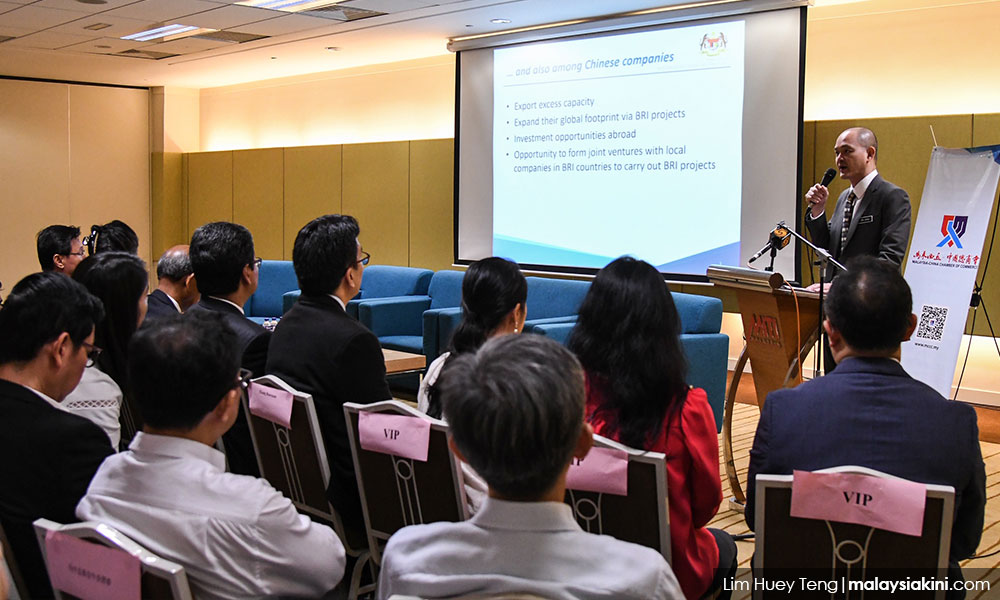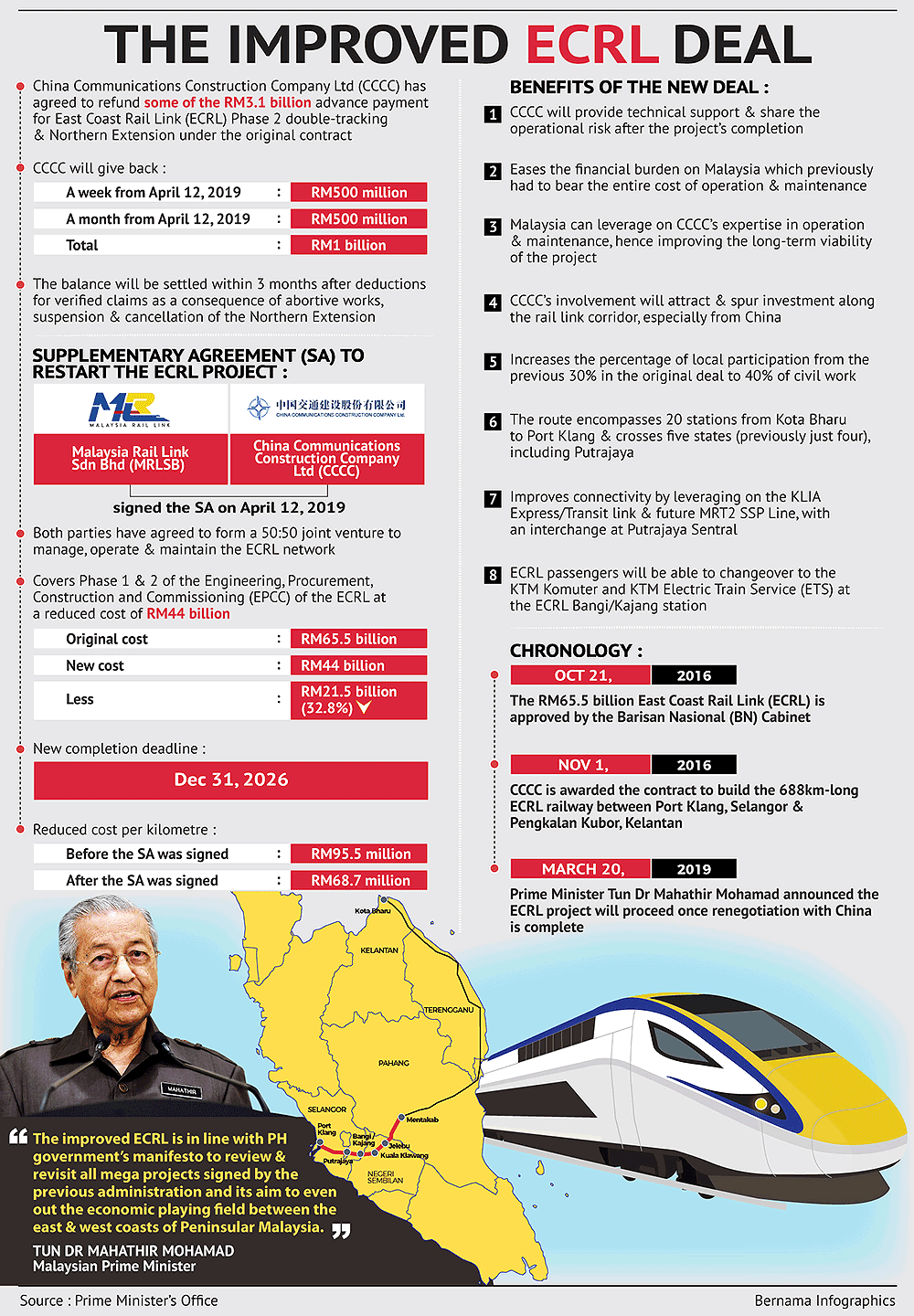
Future infrastructure projects in Malaysia, unlike the East Coast Rail Link (ECRL), will be done via open tender with no preference or bias against companies from any particular country, said International Trade and Industry Deputy Minister Ong Kian Ming.
He said this when asked if Malaysia's policy would be biased against companies from China.
"The answer is no. Because it is clear under the Pakatan Harapan government that what we want to emphasise is to have an open tender process for all projects, especially large-scale projects.
"We don't discriminate between companies from any country, nor do we express a preference for companies from one country over another," he told a press conference in Kuala Lumpur on the upcoming Belt and Road forum in Beijing two weeks from now.
He said the ECRL is an exception as the China Communications Construction Company (CCCC) had already carried out a significant portion of the works.

Going forward, he said, companies from around the world would be welcome to bid on Malaysian infrastructure projects.
Malaysia decided to resume the ECRL project last week after successfully renegotiating the project to save RM21.5 billion from its original cost of RM66.5 million.
The project is now a joint venture between CCCC and Malaysia Rail Link.
Ong was speaking to the media after a forum on what to expect from Malaysia at the Belt and Road Forum.
During the question and answer session, the deputy minister explained the dynamics of the joint venture when asked why Malaysian contractors would only get to work on 40 percent of the project.
"The main reason why we have the 50-50 joint venture is to provide incentives to all the stakeholders involved to ensure the financial sustainability of the project.
"One of the concerns we had was in terms of the operational cost of running the ECRL once it is completed.
"We don't want a case where the turn-key contractor gets paid for the construction portion and then there is no responsibility in terms of the running cost," he added.
He also said Malaysian contractors being allocated 40 percent of the work is an increase from the 30 percent agreed to by the previous government.




No comments:
Post a Comment
Note: Only a member of this blog may post a comment.